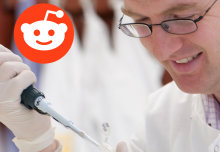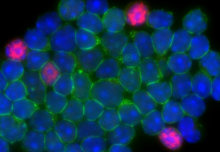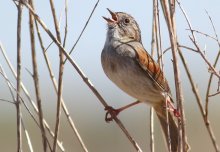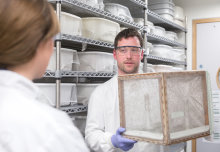

Eye opening
Glaucoma hope from turmeric eye drops
A derivative of turmeric could be used in eye drops to treat the early stages of glaucoma, a new study by Imperial and UCL researchers has found.
 7
7



Glaucoma hope from turmeric eye drops
A derivative of turmeric could be used in eye drops to treat the early stages of glaucoma, a new study by Imperial and UCL researchers has found.
 7
7


Allergic responses linked to skin cancer protection and 'Toxin Hypothesis'
The components of the immune system that trigger allergic reactions may also help protect the skin against cancer, suggest new findings.


Immune cells can switch from ‘gang members’ to ‘police officers’
When the immune system overreacts, as in an allergic reaction, cells causing trouble can change into cells that dampen the reaction.


Respiratory infection expert opens the floor to questions on Reddit
In a live Q&A Dr John Tregoning recently explained how and why his research team is trying to discover targets for new vaccines and antibiotics.


City bees outbreed their country cousins
Bumblebees placed in urban areas produce more offspring than colonies in agricultural areas, concludes a surprising new study.


Managing inheritance of deadly genetic diseases a step closer with new study
The chance of passing on certain types of genetic diseases changes with the age of the mother, according to a new study in mice.


Watching the immune system in action reveals what happens when things goes wrong
Scientists are unveiling how our immune system works – and malfunctions – thanks to an innovative technology that tracks immune cells.
 1
1


Stubborn sparrows may have sung the same songs for hundreds of years
By preserving songs for centuries, American swamp sparrows show a cultural stability previously only seen in humans.


Ovarian cancer cells switched off by 'unusual' mechanism
Scientists at the Ovarian Cancer Action Research Centre at Imperial College London have discovered a mechanism that deactivates ovarian cancer cells.


Combining different malaria vaccines could reduce cases by 91 per cent
Using two experimental anti-malarial vaccines, which work in different ways, can greatly reduce the number of malaria infections in animal studies.